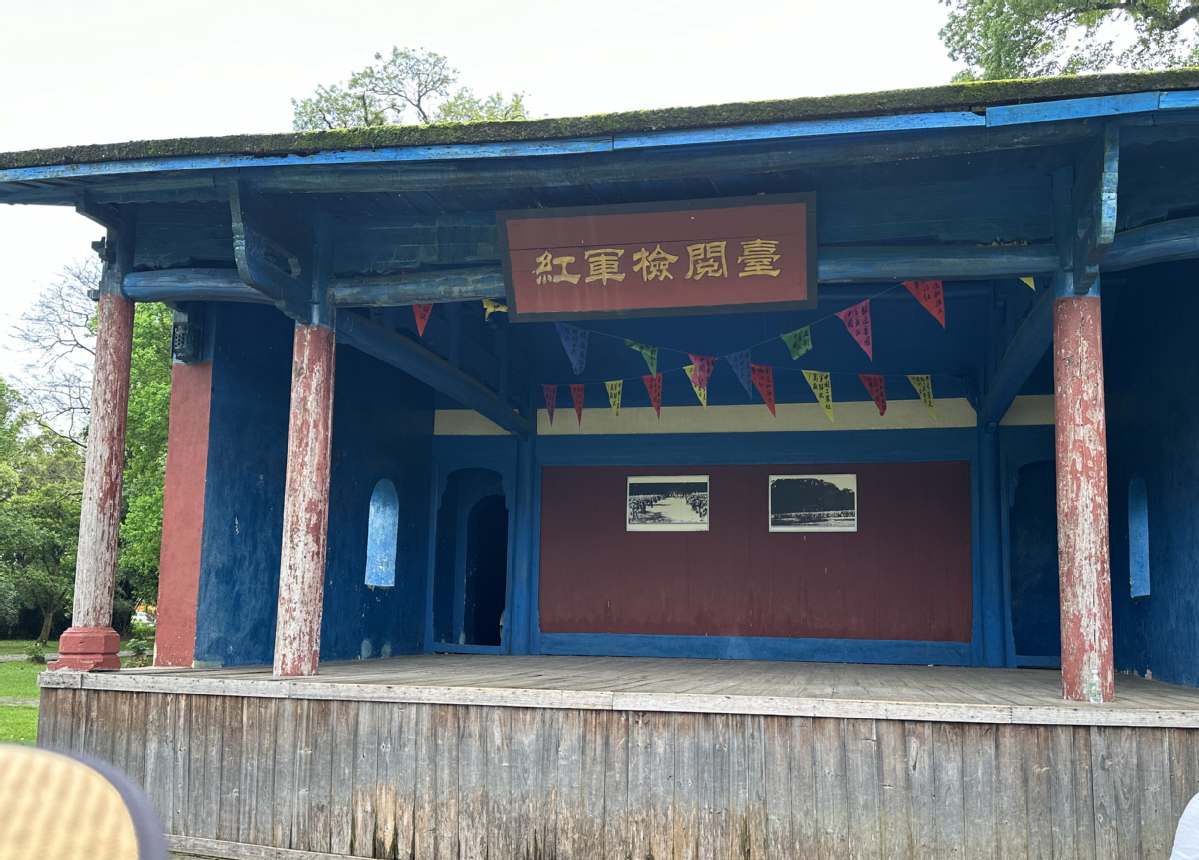
A reviewing stand in Yeping Revolution Heritage Site in Ruijin city of Jiangxi province. [Photo by Zhang Zhouxiang\chinadaily.com.cn]
I was wandering in the Cradle of the Republic tourist garden in Ruijin city, Jiangxi province. From 1931 to 1934, it was capital of the then-Soviet Republic of China, a major regime founded by the Communist Party of China when large parts of the nation were under the governance of Kuomintang in the name of the Republic of China.
Compared with those of Kuomintang's central authorities in then-capital Nanjing, the buildings of the Soviet central government were rather shabby:
A few wooden rooms, roughly built and barely decorated both inside and outside, served as the meeting hall of the central leaders and offices of various ministries. The Central Bank was open to local residents and companies alike, with three or four statues of the former lining its only window.
Like all central banks, the Soviet one also had its gold and banknotes reserved in a wooden room that's not any better than the others, without any visible security measures at the door. On one shelf there were some models of golden bricks, which were placed in place of the real ones about nine decades ago during the Soviet Republic period. Considering that many of the houses were rented and the house owners lived together, it could be said that about 90 years ago the central Soviet government hardly kept its gold reserve guarded, or almost open, to the public.
A rare precedent among all national banks all through the human history. Since the beginning of history, to collect fortune and put it under close guard has been a major concern of various ruling groups of the world. In the same 1930s, the ruling Kuomintang so carefully guarded its gold reserve that their banks were often used by troops as commanding headquarters because their walls were so thick as to be bullet or even light-artillery-fire-proof. For them, fortune must be hidden and separated from the people, the deeper the better.
The Soviet Republic of China was an exception in not only trusting the public, but also cherishing the people more than the cold metal, which originated from the basic principles of Marxism, almost the only major ideology that valued the labor of people in the 1800s and early 1900s when the capitalism-dominated world developed one generation of machines after another without caring a bit about the workers operating them. Karl Marx and Frederich Engels talked about alienation of humans and worked for workers.
Thanks to the great thinkers, communists around the world cared mainly about humans and little about fortune. When workers governed Paris in 1871, leaders of the Paris Commune decided that each of them should get 6,000 francs a year like all ordinary workers, while the annual salaries of Adolphe Thiers overthrown by them and of Napoleon III overthrown by Thiers and his friends were both 3 million francs, or 500 times the former.
That's the fundamental difference between communists and capitalists. That's also the difference that dragged the ruling Kuomintang down from the throne within two decades after the Soviet Republic of China was founded and what will rule the whole world in the future.